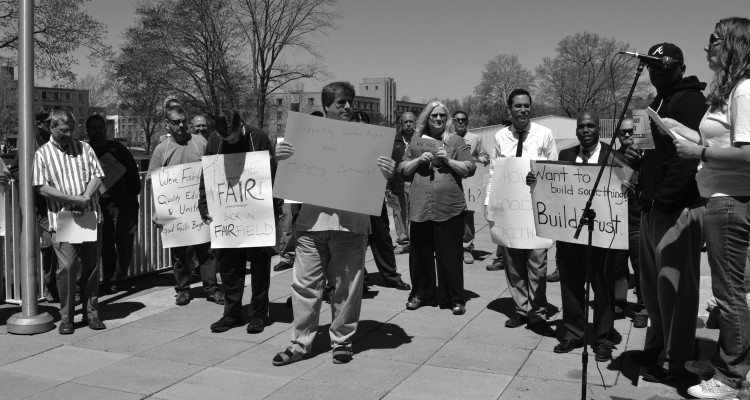To the Editor:
A key principle of academic work is a commitment to shared governance. This principle stems from the inescapable interdependence among all the components of a University and requires that faculty members and administrators collaborate on decisions that affect them both or that contribute to the well-being of the University. Fairfield University has excellent structures in place for robust shared governance. But governance structures are only as good as the individuals employing them and, despite a long and storied tradition of generally good shared governance, we are deeply concerned about recent actions by our administration, which have violated those structures.
Fairfield faculty members, like workers all over America, pay a portion of their health insurance premiums. In May 2013, in a gesture of generosity and good faith, the faculty agreed to more than double their share of premiums beginning in 2014, in exchange for an increase in salary designed to cover about 80 percent of our higher cost. But when the actual 2014 premiums were announced by the administration’s new consultant, they were much higher than had been projected by the administration’s old consultant, and as a result, the increase in salary needed to be augmented. The administration set the 2014 rates as projected by the old consultant, and the faculty considered this a fair and appropriate solution for 2014. Moreover, last May, the administration and faculty worked collaboratively to set up extra checks and balances that would allow the faculty and administration to work together in a meaningful way to address the growth in health care costs and to understand the premium calculations that the administration gets from its paid consultant.
Now, for 2015, the administration is imposing the higher rates without the needed increase in salary – jacking up our rates by 15 percent in a year when our actual health care costs have gone down. This is a classic bait and switch. The faculty agreed to more than double their share of the cost as part of an agreement, and that agreement is not being honored. That is one way to look at the problem, but the real problem is with governance. There are processes in place to be followed, some set up only last May, and these processes were, in effect, ignored. Our concern in this matter and going forward is with the administration’s lack of transparency, the lack of meaningful dialogue and the bypassing of our agreed-upon processes and structures.
We are compelled to communicate with the University community through The Mirror because these attempts to avoid governance are the most egregious we’ve seen in decades. We’ve got scores of people working on multiple task forces as part of Fairfield 2020, our strategic plan refresh, but what kind of a strategic vision does our administration have in mind when they ignore governance and do not honor agreements? We cannot share in a vision that does not include transparency and respect for our long-standing tradition of open and shared governance. We want to see a Fairfield University that stands for fairness and integrity.
Executive Committee of the Faculty Welfare Committee,
Fairfield’s chapter of the American Association of University Professors.



Leave a Reply